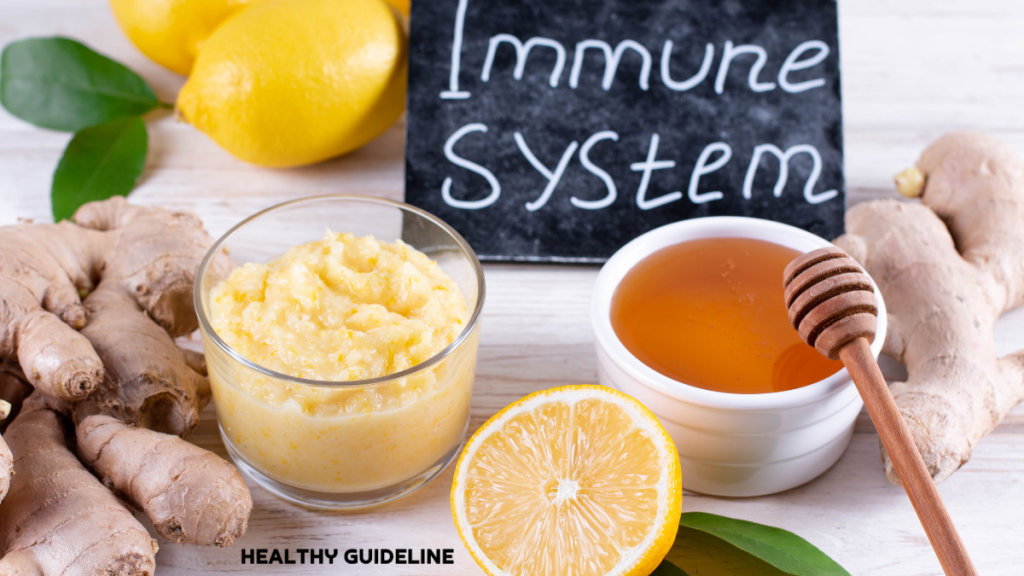Nurturing Your Immune System for Lifelong Health

Explore the incredible world of your immune system, your body's natural defense against illnesses. Learn how to fortify these guardians within, empowering yourself with knowledge and practical tips to boost your immune resilience. Discover a holistic approach to well-being that encompasses nutrition, lifestyle, and mindfulness, ensuring your immune system stands strong against life's challenges.
The immune system is a complex network of cells, tissues, and organs that work together to defend the body against harmful invaders such as viruses, bacteria, and other pathogens.
The immune system recognizes and attacks foreign substances through a coordinated response involving white blood cells, antibodies, and other specialized components.
Key components include white blood cells (leukocytes), antibodies, the lymphatic system, bone marrow, and the spleen.
Yes, maintaining a healthy lifestyle with a balanced diet, regular exercise, adequate sleep, and stress management can support a robust immune system.
Factors such as chronic stress, lack of sleep, poor nutrition, and certain medical conditions or treatments can weaken the immune system.
The immune system tends to weaken with age, making older individuals more susceptible to infections and illnesses.
Foods rich in vitamins C and D, zinc, and antioxidants can support immune function. These include fruits, vegetables, nuts, and seeds.
Regular, moderate exercise can enhance the immune system by promoting healthy circulation and reducing inflammation.
Quality sleep is crucial for immune function. Lack of sleep can impair the immune response and increase susceptibility to infections.
Chronic stress can suppress the immune system, making the body more vulnerable to infections and diseases.
Vaccinations stimulate the immune system to produce an immune response, providing protection against specific diseases.
The immune system recognizes viruses as foreign invaders and produces antibodies to neutralize and eliminate them.
Autoimmune diseases occur when the immune system mistakenly attacks the body’s own tissues, leading to inflammation and damage.
Yes, allergies result from an overactive immune response to harmless substances, triggering symptoms such as sneezing and itching.
The immune system can identify and destroy cancer cells through mechanisms like cytotoxic T cells and natural killer cells.
Immunodeficiency is a condition where the immune system is weakened, increasing susceptibility to infections and illnesses.
The time it takes for the immune system to respond depends on factors such as the type of pathogen and the individual’s overall health.
Antibiotics target and eliminate bacteria but do not strengthen the immune system. Overuse can lead to antibiotic resistance.
Memory cells, a type of white blood cell, allow the immune system to recognize and mount a faster response to previously encountered pathogens.
Yes, a healthy gut microbiome plays a crucial role in supporting the immune system’s function.
Smoking weakens the immune system, making individuals more susceptible to infections and reducing the effectiveness of vaccinations.
While the immune system can defend against some viruses causing colds, there is no foolproof prevention due to the variety of cold viruses.
Antigens are substances that trigger an immune response. They can be part of pathogens or foreign substances that the immune system recognizes as potential threats.
Fever is a natural response to infection, as higher temperatures can enhance the immune response and inhibit the growth of certain pathogens.
Yes, allergies result from an exaggerated immune response to substances that are typically harmless.
The skin serves as a physical barrier, preventing pathogens from entering the body. Additionally, immune cells in the skin help defend against infections.
Inflammation is a natural response to infection or injury, involving immune cells that work to eliminate pathogens and promote healing.
The immune system can adapt to new threats, but its effectiveness depends on factors such as the nature of the pathogen and the individual’s immunity.
Vaccines contain weakened or inactivated forms of pathogens, stimulating the immune system to produce a protective response without causing illness.
Maintaining a balanced diet, regular exercise, sufficient sleep, stress management, and avoiding smoking and excessive alcohol contribute to a healthy immune system.
In the journey to better health, remember that small steps lead to significant changes. Embrace the power of consistency and patience as you strive for a healthier and happier life. Your well-being is a lifelong commitment, and each positive choice is a step towards a more vibrant you. Thank you for joining us on this wellness adventure. Here's to a life filled with vitality, purpose, and the joy of living well!"









